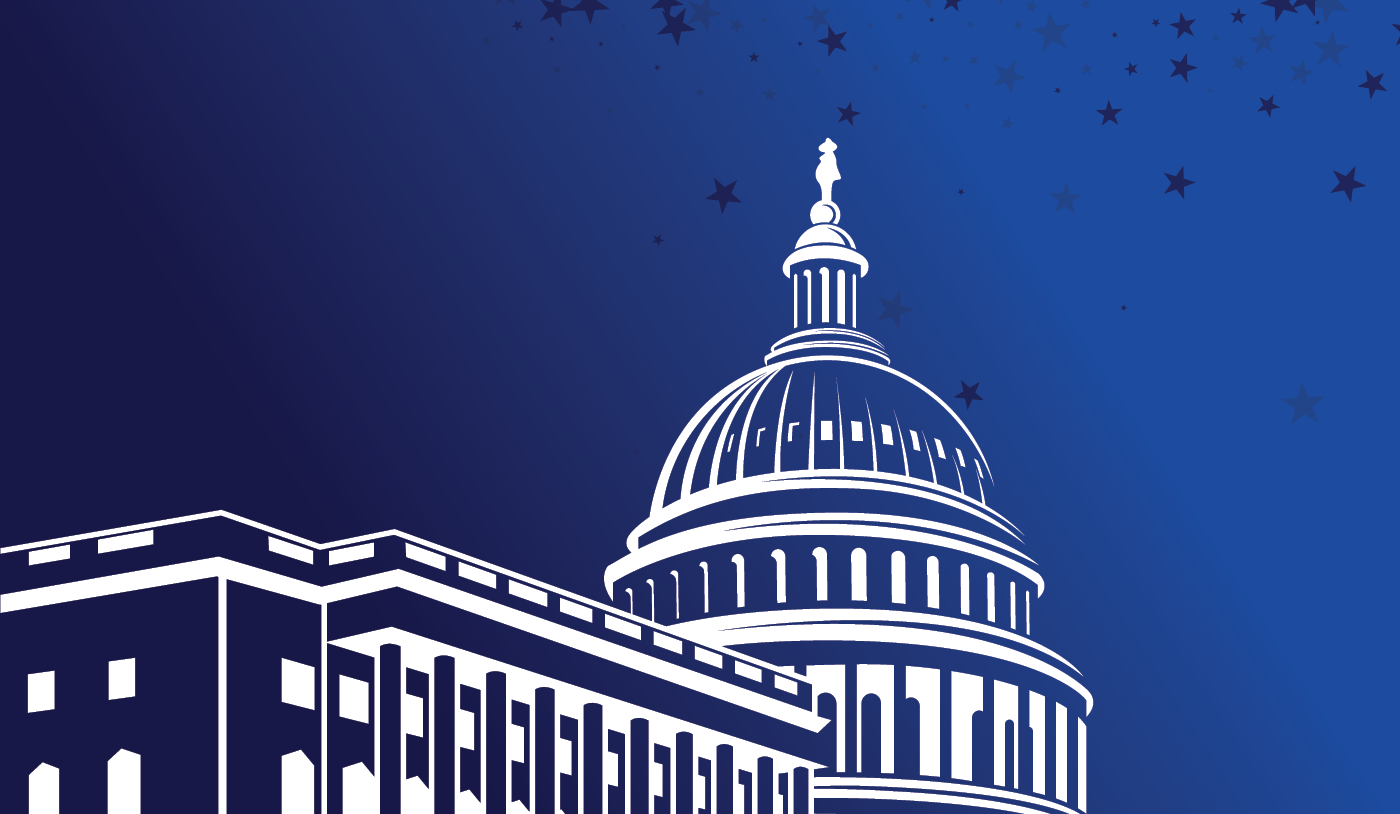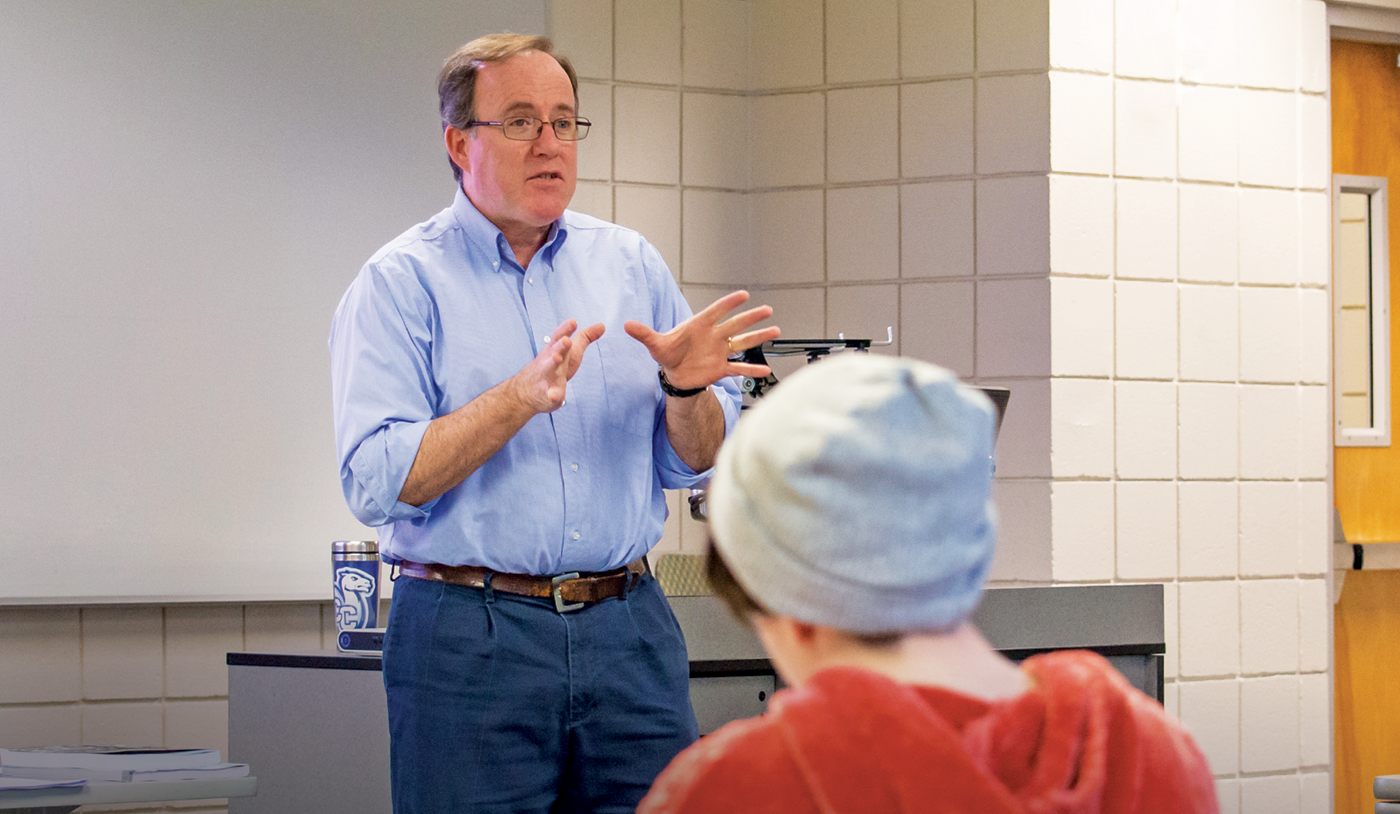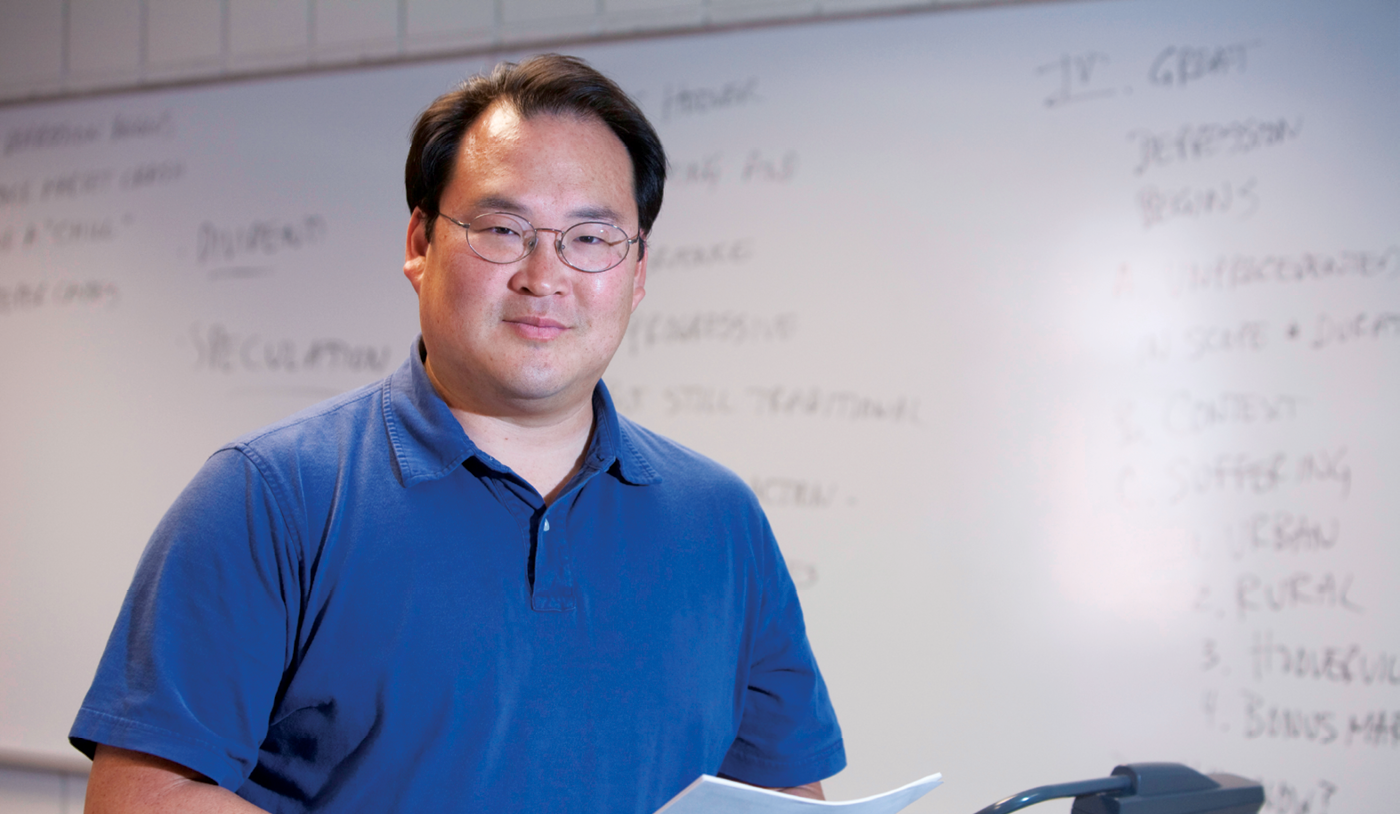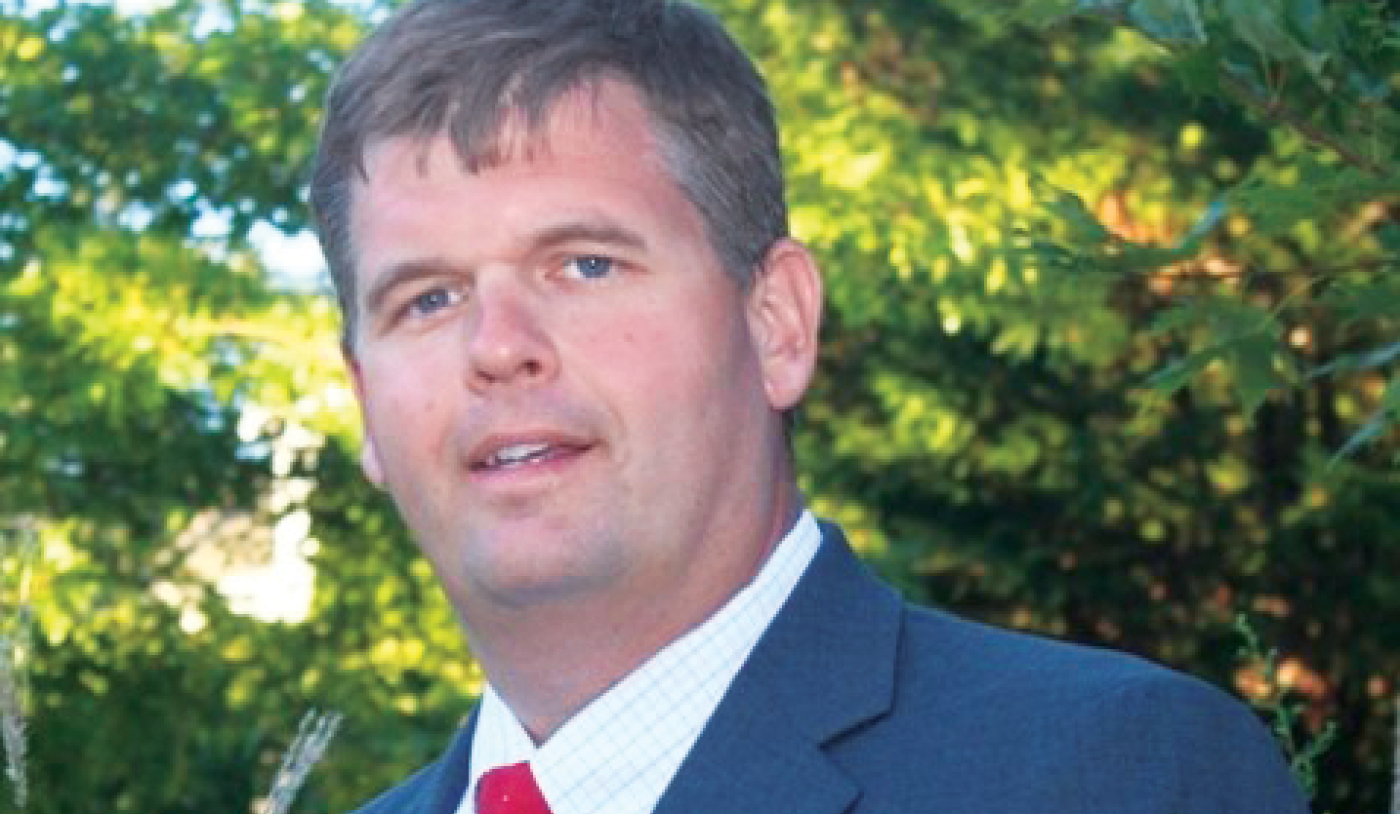
Election 2020 Heats Up
By Alex Lyman '12/G'16
The 2020 Presidential Election is gearing up and is slated to be entirely unprecedented. Not only will the history books have a lot of information to cover and analyze, but voters must wade through a quagmire of candidates, issues, and scandals in real time.
Over the course of the election so far, the country has faced a variety of headline-making issues, but the biggest concerns affect the voters themselves. From a crowded Democratic field early on, misinformation spread on social media, the threat of both computer hacking and direct election interference, and the COVID-19 pandemic, American citizens have a lot to contend with as they seek to fulfill their right to vote.
Democrats Create a Crowded Field
Democrats began the election cycle in the position of searching for the perfect candidate to run on the Democratic ticket. What was unusual was that while there were several big names and front runners that could potentially fit the bill, more and more Democrats signaled their intention to run. In fact, Democrats started off with a field of nearly 30 candidates early on, which was overwhelming for the average voter.
Professor of History John Baick says this may not be a winning strategy in terms of finding the best candidate.
“That’s something where the Democratic party, and they have a track record for doing this, could end up hurting themselves because there are too many voices, where in the end, they are actually not so different,” he said.
In fact, because the field was so oversaturated, the Democratic National Committee had to make some changes to accommodate the voters, particularly as it pertained to televised debates. The DNC set benchmarks for polling and fundraising in order to qualify for the debate stage. But as more candidates hit those thresholds, debates had to be staged over two days at times, with candidates assigned to each night at random.
A dense field proved challenging for many of the lesser-known the candidates, who struggled to break out from the pack. Professor of Political Science and Director of the Polling Institute Tim Vercellotti noted that many credible candidates were unable to find a hook—what made them memorable to voters—and therefore Democrats may have lost out on solid options.
“In order to survive in a crowded field you need money,” he said. “There were very good candidates in the field who just couldn’t get traction because they didn’t have the money to get on television and open offices in early voting states, so they dropped out. In a different year, if it was a much smaller field, there were some very talented, accomplished people in this cycle who might have made it much further.”
With President Trump as the Republican nominee, his campaign for re-election is also in full swing, adding his voice to those vying for presidency, and adding more complexity to the election cycle. As the incumbent, President Trump still has a strong base that wants to see him through to a second term through both fundraising and votes.
On top of the work the average citizen must accomplish in order to properly vet each candidate, the election cycle seems to increase in length each year, creating burn out among voters.
“It feels like it starts earlier and earlier and I think there is voter fatigue,” said Dr. Vercellotti. “I think if you look at what was a very crowded Democratic field and then the large number of debates that were held, by the time people began voting in the primary season, they felt a little worn down by it.”
Dr. Vercellotti noted a great contrast in the way that other countries conduct their elections. For example, Ireland has a 25 day campaign period, and Britain’s is six weeks. Of course there is politicking and positioning ahead of time, but it is nothing like the marathon that is the United States election cycle.
Dr. Baick offered some advice to survive the endless campaigning and to build stamina for the November election, as well as make an educated decision on who to vote for.
“Too much information becomes a distraction,” he said. “The key is to focus, to stay really attentive to the issues that matter to you, and to try to filter out a lot of the noise. Some Americans get distracted by promises, and they need to step back and see whether it is realistic or not.”
"Social media is critical and I think there are greater demands on people to be discerning in what they see. Stories that get pushed at us on Facebook or Twitter are not always credible and we don’t always have the tools we need to judge what is legitimate and what isn’t.” - Dr. Tim Vercellotti, Professor of Political Science and Director of the Polling Institute
Deterring the Spread of Misinformation in Social Media
Social media is a huge part of many people’s lives, spanning generations from Generation Z and Millennials, to Baby Boomers and beyond. Whether it’s staying in touch with friends and family or reading news headlines, social media has kept us connected, for better or worse, in ways that the Founding Fathers could not have dreamed of.
“I think that in the age of social media, in the age of the Internet, most people think that they are very well informed,” noted Dr. Baick. “But if we were able to give people a test, I think a lot of people would be tripped up. Not by the big things, but by a lot of the details.”

Adds Dr. Vercellotti: “Social media is critical and I think there are greater demands on people to be discerning in what they see. Stories that get pushed at us on Facebook or Twitter are not always credible and we don’t always have the tools we need to judge what is legitimate and what isn’t.
“I think what distinguishes this cycle from previous cycles is the demands on the ordinary voter are greater to sift good information from bad, and as educators we have to help give people the tools to do that.”
One of those tools Dr. Vercellotti is referencing is taking the time to ask some simple questions. If an article shows up in your Facebook feed, there is usually an explanation for why you are seeing it—something about your profile brought that article to you. On Twitter, you can always go back and look at who is responsible for a specific tweet and the clues their profile may offer in terms of legitimacy.
Dr. Vercellotti also cautions voters about letting their passion for politics get ahead of their common sense. He contends that an article or statement might make us excited, or even offend and anger us, but we must pause before sharing or liking information without verifying it first. Without that pause, we are individually culpable for spreading misinformation, and our own personal credibility is at stake.
Politics as Usual?
Another way this election is shaping up to be unlike any other is by the amount of discordant rhetoric that streams through social media, family dinners, and water cooler discussions. The stakes seem higher than ever in this election, and the tension is incredibly evident.
“I would say that there are more people who say that they are undecided than in the past, but I don’t think that they are undecided,” said Dr. Baick. “I think instead that they want to keep their cards close to the vest and they’re not really willing to say what they think.

Dr. Baick says that while more recent elections in the ’70s or ’80s had their share of heated moments, they were nowhere near the level we see today. The election of 1896 is what Dr. Baick would draw parallels to, and even that seems to come of up short in terms of how contentious it feels.
“The biggest concerns that we have about the upcoming election are foreign interference and the misinformation campaigns that appear to be getting more frequent.” - Ted Bromley L'99, Director of Elections, State of Connecticut
Addressing Foreign Interference and Hacking
One of several pressing concerns about the upcoming election is the threat of interference through hacking. Technology is increasingly at risk for intrusion by hackers and that leaves everything from our credit card information to election results vulnerable.
“There is the ongoing question of the security of our elections,” noted Dr. Vercellotti. “Are voting machines and counting processes sufficiently protected from tampering? And then, how secure are the voter rolls? Are the states properly maintaining them or are they aggressively purging the names and people who really deserve to be on those rolls? We have to be vigilant about that as well. It’s interesting because a lot of the mechanics of elections become important. It almost crowds out the actual issues, all the policy issues and differences.”
While our systems may not be infallible to hackers, election officials are doing everything in their power to protect the integrity of the election. In fact, they have plenty of safeguards and policies in place to do just that.

Ted Bromley L’99 is the director of elections in the State of Connecticut and regularly drafts new legislation and advises state legislature, local election officials, and other state agencies on the proper conduct of election. It’s a critical role that has only grown in importance.
“The biggest concerns that we have about the upcoming election are foreign interference and the misinformation campaigns that appear to be getting more frequent,” he said. “We work closely with our federal partners who offer assistance and support to ensure that our technology is properly secured.”
Most recently, he led the statewide implementation of optical scan voting equipment, which is vital in a paper ballot state like Connecticut. This machine provides and preserves the historical document of the voter’s true intention, should a recount or audit of the election results be required. Bromley manages the statewide administration of the Centralized Voter Registration System and associated training program. This system ensures that the state can produce and manage voter registration lists accurately and efficiently.
The chaos in Iowa that resulted in the delayed reporting of Democratic Caucus results due to a new app that malfunctioned, highlighted the fact that elections are already technologically vulnerable, even without any sort of hacking or interference.
“The Iowa Caucus is an excellent reminder of why our office is so important when it comes to election administration,” Bromley said. “Important elections should be run by trained, skilled, and experienced state and local election administrators, not political parties. Although it may take a little longer to report results, Connecticut’s reliance on paper is our best defense against threats to our cyber security. We must all be very careful not to thrust our elections into the latest technology for the sole purpose of speed. We must ensure that any technology used for results reporting and speed is balanced with the appropriate amount of cyber security.”
While election officials are cognizant of the perils of voting facing the modern world, that knowledge alone doesn’t make the system invincible. That means it becomes that much more important for election administrators to be extremely vigilant and for elections to be as transparent as possible.
COVID-19 Enters the Race
In late February 2020, a new, uninvited guest suddenly emerged in the race for President: the COVID-19 pandemic. The thought of the virus spreading through the polls became a concern. For a short time primaries continued, including Super Tuesday, the largest block of voting states. However, the pandemic progressed, states issued stay-at-home orders, and the country shut down in order to curb the spread of the virus. Despite this, quite a few states had not yet held their own primary elections, and were forced to reconsider how they may take place.
As many as 15 states and Puerto Rico postponed their primary elections or switched to an extended voting by mail process to allow residents to cast their vote safely. Arizona, Florida, and Illinois held their own elections on March 17, just as COVID-19 was ramping up in the country, and polling locations were shown to be packed with voters not able to abide by social distancing guidelines. As Joe Biden was named the presumptive Democratic nominee, New York became the lone state to cancel its primary election altogether. The Democratic National Convention was even rescheduled from June to late August, holding up the naming of an official Democratic nominee.
This, of course, begs the question, what does this mean for November? This election could potentially take place in the middle of a second wave of COVID-19. There is a possibility that voting methods must shift in order to accommodate citizens who could spread or be exposed to the virus.
Coincidently, Dr. Baick, who was interviewed for this article well before the pandemic, predicted that there might need to be future changes to the way we vote. Though his viewpoint came in the context of election interference, his comment may be closer to the truth for this pandemic.
“There might come a day where we have to rethink or redo an election,” Dr. Baick mused. “What if we didn’t know who the new president was until January?”
Whether that means voting by mail-in ballot, or increasing the number of polling sites while decreasing occupancy limits, there will need to be special care to protect both the integrity of voting and the health and wellbeing of voters.
Moving Forward in 2020
Looking forward to the election in November, there are many more challenges to democracy on the horizon. There are major issues facing society such as the impact of the retirement of 80 million Baby Boomers, climate change, and tackling COVID-19 through vaccines.
The need to address these issues head-on is critically important, and starts with smart voting in order to get representatives in all offices that are willing to take on the issues voters feel most strongly about.
Dr. Baick offered clear cut methods for voters to gauge candidates up for election.
“The first thing I would tell someone is to make sure they are registered to vote,” he says. “All of this means nothing if people don’t vote. The second thing is, I think they should look at the candidates and the issues and ask, how does this affect the future? But not just my future and not just my pocketbook. Voters must feel comfortable with that.”


